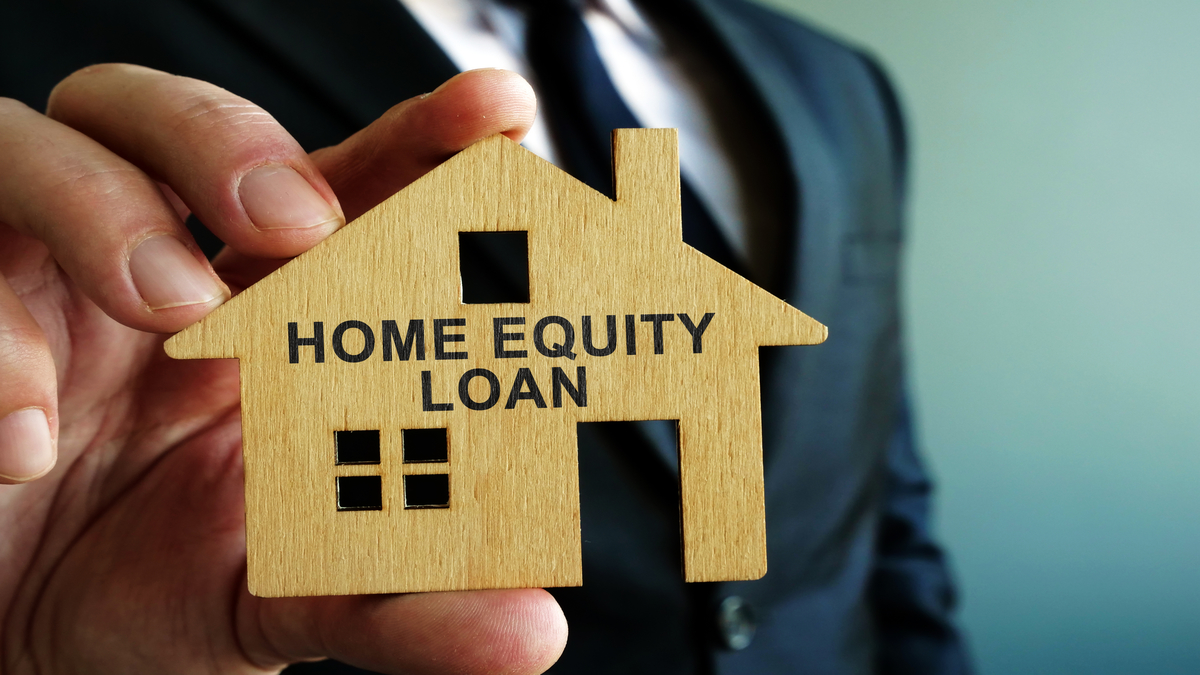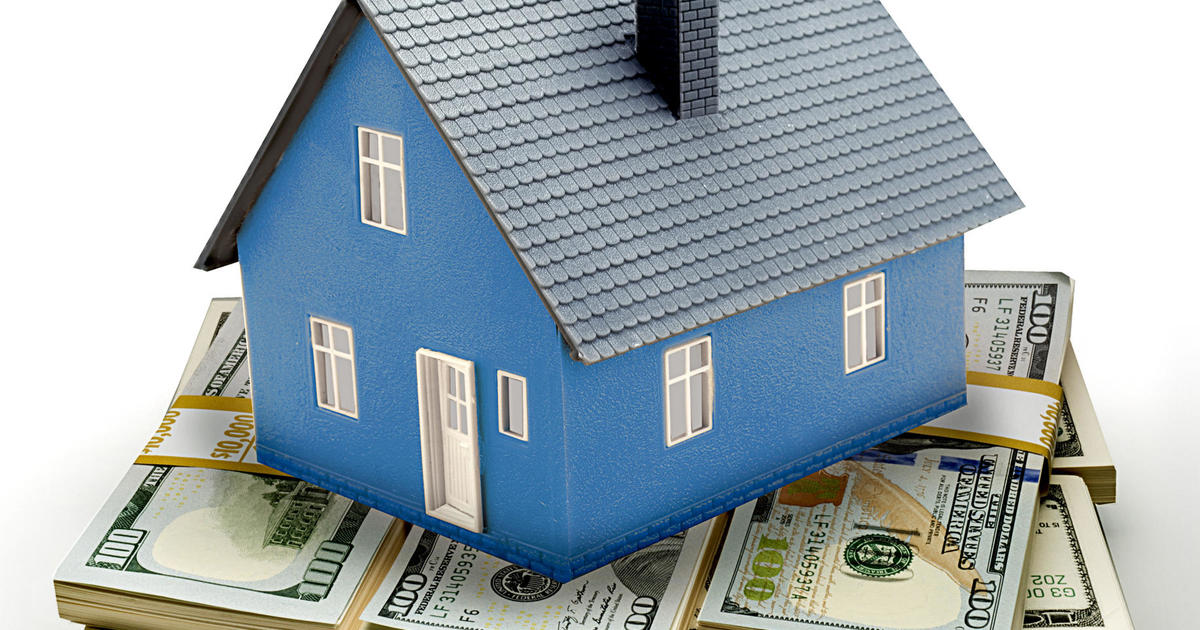Home Equity Loans - Definition, Pros, And Cons
A home equity loan, which is sometimes called a second mortgage, lets people borrow money against the value of their homes. Home equity loans became very popular in the 1980s.
Author:James PierceReviewer:Camilo WoodJan 09, 2024228 Shares56.9K Views

A home equity loan, which is sometimes called a second mortgage, lets people borrow money against the value of their homes. Home equity loans became very popular in the 1980s.
With a home equity loan, residents were able to deduct all of the interest when they filed their taxes. This article talks about how a home equity loan works, its pros and cons, and how it is different from a home equity line of credit (HELOC)
What Is A Home Equity Loan?
A home equity loan enables you to access cash by leveraging the equity in your home. This cash is provided as a lump-sum payment, and you are required to repay it at a fixed interest rate over a predetermined period, usually ranging from five to 20 years, although some lenders extend terms up to 30 years.
Typically, lenders mandate a minimum of 20% equity in your home, although some may permit borrowing over 90% of the home's value. The National Association of Realtors reports that experienced homeowners, who made an average down payment of 17% the previous year, often become eligible for a home equity loan shortly after closing. On the other hand, first-time homebuyers, with an average down payment of 6%, may find themselves with fewer lender options and higher combined loan-to-value (CLTV) limits.
By consistently making mortgage payments, you can build up your home's equity. Additionally, if real estate values in your area have increased since your home purchase, your equity may be growing at an accelerated pace.
In 2022, property data provider CoreLogic revealed that homeowners with mortgages in the U.S. experienced a nearly 16% year-over-year increase in their equity. This suggests that even those who made modest down payments or have owned their homes for a relatively short period may already qualify for a home equity loan.
How Does A Home Equity Loan Work?
Home equity loans, often referred to as "second liens" or "second mortgages," function as a financing option where a portion of the home's total value is borrowed, using the property as collateral. As a homeowner, this arrangement has both advantages and disadvantages. While a home equity loan typically offers a better interest rate compared to an unsecured loan, the downside is the increased risk, as the lender has the right to foreclose on your home if you fail to meet your payment obligations.
When considering a home equity loan, the initial step is determining the amount you need to borrow. Unlike a home equity line of credit (HELOC), which allows you to draw funds as needed, home equity loans require a clear understanding of the upfront project cost. Once the borrowing amount is established, it's crucial to calculate the equity value relative to the overall home value.
The subsequent step involves shopping around for a lender. It is advisable to contact multiple lenders to find the most favorable rates and terms. Our list of the top home equity loan lenders can serve as a useful starting point in this process.
Upon approval, you will receive the full loan amount at the closing, and you'll be responsible for repaying the home equity loan - both principal and interest - on a monthly basis at a fixed rate over a specified number of years. It is essential to ensure that you can comfortably manage this additional mortgage payment along with your existing mortgage and other monthly expenses.
Special Considerations
The popularity of home equity loans surged after the enactment of the Tax Reform Act of 1986. These loans offered consumers a means to navigate a significant provision of the act, which eliminated deductions for interest on most consumer purchases. The act, however, retained an important exception: interest related to residence-based debt.
In 2017, the Tax Cuts and Jobs Act brought about a change by suspending the deduction for interest paid on home equity loans and home equity lines of credit (HELOCs) until 2026. The Internal Revenue Service (IRS) specified that the deduction could be maintained if the funds were used to "buy, build, or substantially improve the taxpayer’s home that secures the loan." Notably, interest on home equity loans utilized for purposes such as consolidating debts or covering a child's college expenses is not tax-deductible.
Similar to a mortgage application, you can request a good-faith estimate, but it is advisable to conduct your assessment of your finances beforehand. Understanding your creditworthiness and home value is crucial before applying, helping you save money, particularly on the appraisal of your home, which can be a substantial expense. If the appraisal falls short of supporting the loan, the money spent on it is non-refundable.
Before finalizing the agreement, especially when using a home equity loan for debt consolidation, it's essential to run the numbers with your bank. Confirm that the monthly payments on the new loan will genuinely be lower than the combined payments of all your existing obligations. Despite the lower interest rates associated with home equity loans, be mindful that the term of the new loan could potentially be longer than that of your current debts.
Benefits For Consumers
Home equity loans offer a readily available means of accessing cash. While the interest rate on a home equity loan is generally higher than that of a primary mortgage, it remains significantly lower than rates associated with credit cards and various consumer loans.
One prevalent motivation for homeowners to utilize a fixed-rate home equity loan is to settle credit card balances. Through debt consolidation with a home equity loan, individuals benefit from a single monthly payment and a reduced interest rate, even though the associated tax advantages are no longer applicable.
Benefits For Lenders
Home equity loans represent a favorable scenario for lenders. Having already earned interest income and fees from the borrower's initial mortgage, lenders stand to gain even more through interest and fees on the subsequent home equity debt.
In the unfortunate event of a borrower default, the lender not only retains all earnings from both the initial mortgage and the home equity loan but also gains possession of the property, allowing them to sell it anew and initiate the cycle once more. From a business model standpoint, it's challenging to envision a more appealing arrangement.
Home Equity Loans Vs. HELOCs
Home equity loans furnish borrowers with a singular lump-sum payment, which is then repaid over a predetermined period, usually spanning five to 15 years, at an agreed-upon interest rate. Throughout the loan's duration, both the payment amount and interest rate remain constant. Should the home securing the loan be sold, the entire loan amount must be repaid in full.
On the other hand, a Home Equity Line of Credit (HELOC) operates as a revolving line of credit, akin to a credit card. Within a timeframe that the lender specifies, borrowers can draw on the credit line as needed, pay it back, and then draw on it again.
The draw period typically spans five to 10 years, followed by a repayment period where further draws are prohibited, lasting from 10 to 20 years. HELOCs commonly feature a variable interest rate, although some lenders may provide fixed-rate options for HELOCs.
Advantages Of Home Equity Loan
Home equity loans offer a convenient source of cash and can serve as valuable tools for responsible borrowers. If you have a consistent and reliable income, coupled with confidence in your ability to repay the loan, the combination of low-interest rates and potential tax deductions makes home equity loans a sensible and beneficial choice.
Securing a home equity loan is often straightforward for many consumers due to its status as a secured debt. The lender typically conducts a credit check and orders a home appraisal to assess your creditworthiness and calculate the combined loan-to-value ratio (CLTV).
While the interest rate on a home equity loan is higher than that of a primary mortgage, it still proves considerably lower than the rates associated with credit cards and various consumer loans. This contributes to the widespread use of fixed-rate home equity loans to settle credit card balances.
Home equity loans are particularly suitable if you have a precise understanding of the amount you need to borrow and the purpose for which it will be used. The assurance of a predetermined loan amount, received in full at the closing, makes home equity loans a preferred choice for larger expenses such as home remodeling, education expenses, or even debt consolidation, as the funds are provided in a single lump sum.
Disadvantages Of Home Equity Loan
The primary drawback of home equity loans lies in their potential to present an overly convenient solution for borrowers caught in a perpetual cycle of spending, borrowing, and sinking deeper into debt. This common scenario even has a term among lenders: reloading. Reloading involves taking out a loan to pay off existing debt, thereby freeing up additional credit, which the borrower then uses for additional purchases.
This reloading practice results in a spiraling cycle of debt, prompting some borrowers to turn to home equity loans that offer an amount equivalent to 125% of the equity in their homes. However, these loans often come with higher fees because the borrowed amount exceeds the actual value of the house, making the loan less fully secured by collateral. It's crucial to note that the interest paid on the portion of the loan exceeding the home's value is not tax-deductible.
When applying for a home equity loan, there may be a temptation to borrow more than is immediately necessary, given that the payout occurs once and future loan eligibility is uncertain. If considering a loan exceeding the home's value, conducting a reality check is essential. If managing finances was challenging with only 100% of the home equity owed, increasing debt by 25%, plus interest and fees, is likely unrealistic and could lead to a slippery slope toward bankruptcy and foreclosure.
The Right Way To Use A Home Equity Loan
For responsible borrowers with a consistent and reliable income, home equity loans prove to be valuable financial tools. The low-interest rate associated with these loans makes them a sensible alternative for those confident in their ability to repay.
Fixed-rate home equity loans are particularly beneficial for addressing substantial one-time expenses, such as funding a new roof for your home or covering unexpected medical bills. On the other hand, a Home Equity Line of Credit (HELOC) offers a convenient solution for managing short-term recurring costs, like quarterly tuition payments for a four-year college degree.
Home Equity Loan Requirements
Each lender sets its own criteria, but typical requirements for approval of a home equity loan include:
- Equity in the home exceeds 20% of its value.
- A verifiable income history spanning two or more years.
- A credit score surpasses 600.
While it is technically possible to secure approval for a home equity loan without meeting these criteria, it often comes at the cost of a significantly higher interest rate, particularly when dealing with lenders specializing in high-risk borrowers.
The interest rates mentioned here assume a loan amount of $25,000 and a loan-to-value ratio of 80%. For Home Equity Line of Credit (HELOC) rates, it is assumed during the initiation of the credit line, with the understanding that rates may fluctuate based on market conditions thereafter.
Example Of A Home Equity Loan
If you owe $10,000 on a car loan with a 9% interest rate and have two years left to pay it off, be careful about consolidating that debt into a home equity loan at 4% interest over five years. Even though the interest rate is lower, taking the full five years to pay off the home equity loan could end up costing you more.
Also, keep in mind that your home is now used as collateral instead of your car. If you can't make the payments, you could lose your home, which is much worse than giving up a car.
Home Equity Loan - FAQ
How Can I Use Home Equity Loan?
Making home improvements and upgrades. Paying medical bills. Making key purchases, such as a car or a truck. Funding investments.
How Is Home Equity Calculated?
Take your home's value, and then subtract all amounts that are owed on that property. The difference is the amount of equity you have. For example, if you have a property worth $400,000, and the total mortgage balances owed on the property are $200,000, then you have a total of $200,000 in equity.
Can You Borrow Money Using Equity?
For example, if your home is worth $400,000 and you still owe $220,000, your equity is $180,000. The great thing is that you can use equity as security with the banks. This means you can borrow against your equity to fund life's big purchases, such as: extending your home.
Conclusion
For those who are sure of the amount of equity needed and value the security of a set interest rate, a home equity loan could end up being a better financial choice than a HELOC. Debt consolidation and home repair funding are two areas where consumers should proceed with care.
Borrowers run the danger of having their credit ruined and their homes foreclosed if they take out too much equity from their loans. If you want to prevent yourself from getting financially underwater on your mortgage, you need to be cautious while taking out home equity loans.
Jump to
What Is A Home Equity Loan?
How Does A Home Equity Loan Work?
Special Considerations
Benefits For Consumers
Benefits For Lenders
Home Equity Loans Vs. HELOCs
Advantages Of Home Equity Loan
Disadvantages Of Home Equity Loan
The Right Way To Use A Home Equity Loan
Home Equity Loan Requirements
Example Of A Home Equity Loan
Home Equity Loan - FAQ
Conclusion

James Pierce
Author

Camilo Wood
Reviewer
Latest Articles
Popular Articles

